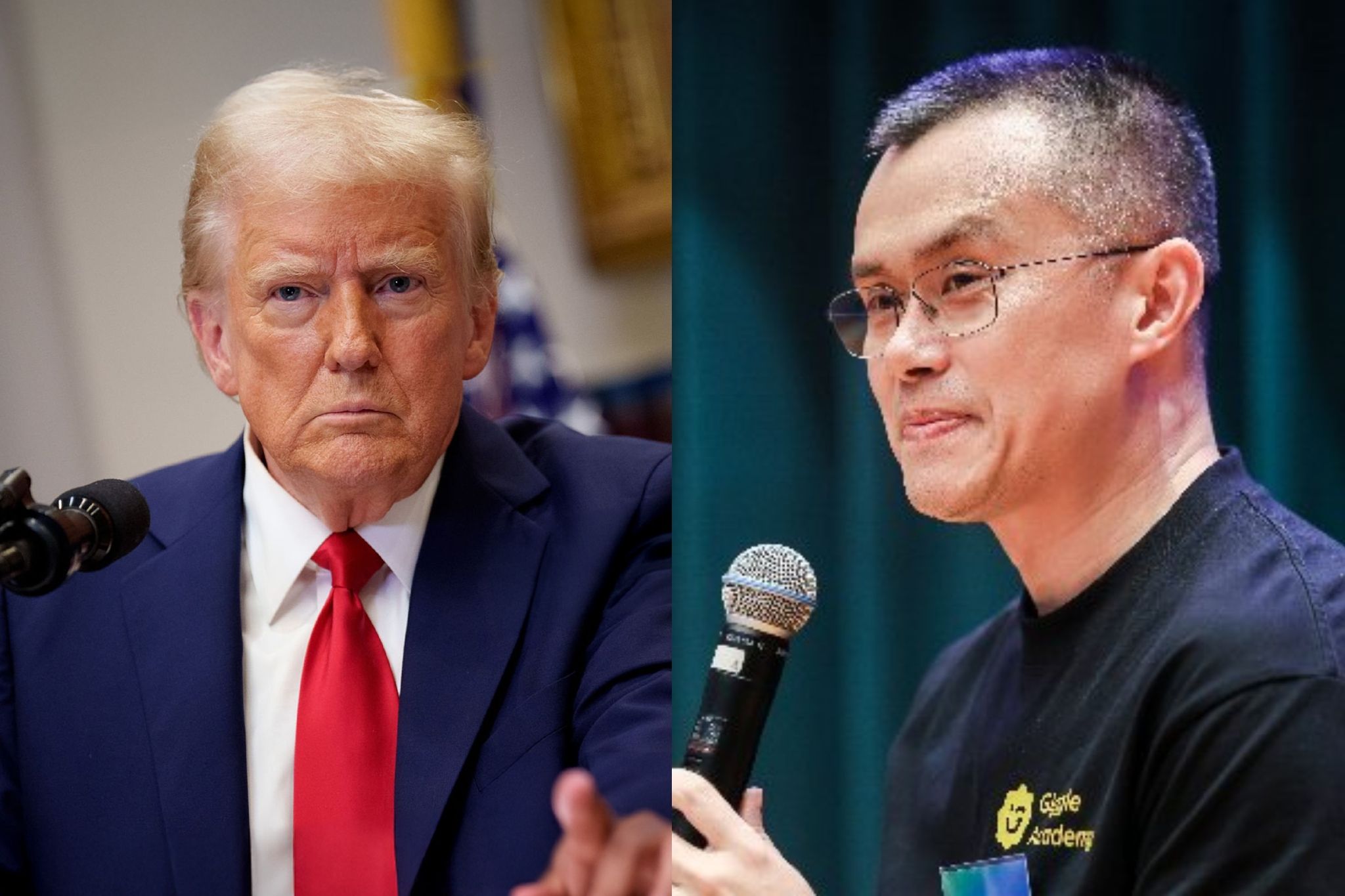Top Stories
Trump Grants Pardon to Canada’s Richest Man, Changpeng Zhao

On October 23, 2024, U.S. President Donald Trump announced that he has pardoned Changpeng Zhao, the former CEO and co-founder of Binance, a leading cryptocurrency exchange. This decision comes after Zhao faced legal troubles related to violations of the Bank Secrecy Act and served four months in a California prison earlier this year.
Zhao, often referred to as CZ, is recognized as Canada’s wealthiest individual, boasting an estimated net worth of C$61 billion. Despite the Thomson family being the richest family in Canada with a combined net worth of C$98.15 billion, Zhao has maintained a high profile in the global cryptocurrency sector.
Legal Issues and Penalties
In early 2023, Zhao pleaded guilty to charges related to the Bank Secrecy Act, specifically for failing to implement an effective anti-money laundering program at Binance. Following his guilty plea, Binance was required to pay a hefty penalty amounting to US$4.3 billion. Zhao himself incurred a criminal fine of US$50 million and an additional US$50 million to the U.S. Commodity Futures Trading Commission.
U.S. authorities accused Binance of facilitating transactions linked to serious crimes, including child exploitation, drug trafficking, and financing terrorism. Despite these allegations, Trump’s announcement of the pardon raises questions about the implications of such clemency in the context of cryptocurrency regulation.
Trump’s Justification and Reactions
During the announcement, Trump stated, “I don’t believe I’ve ever met him, but he had a lot of support — a lot of support. And they said that what he did is not even a crime.” Zhao expressed gratitude through a message on social media platform X, emphasizing his commitment to advancing the cryptocurrency sector in the United States, declaring he would “do everything we can to help make America the Capital of Crypto.”
White House Press Secretary Karoline Leavitt supported the pardon, describing the case against Zhao as “overly prosecuted” by the previous administration. She cited that even the presiding judge acknowledged the excessive nature of the sentencing that Zhao faced.
The constitutional basis for the pardon allows presidents to grant clemency without approval from other branches of government. According to Congressional Digest, this power has been included in the U.S. Constitution to prevent judicial decisions deemed excessively harsh. However, concerns persist regarding potential abuses of this privilege, especially in cases involving individuals with personal connections to the president.
U.S. Senator Elizabeth Warren sharply criticized Trump’s decision, accusing Zhao of promoting one of Trump’s cryptocurrency ventures and lobbying for his pardon. “Today, Donald Trump did his part and pardoned him. If Congress does not stop this kind of corruption in pending market structure legislation, it owns this lawlessness,” Warren stated.
In response to Warren’s comments, Zhao threatened legal action for defamation, clarifying that his conviction was specifically related to violating the Bank Secrecy Act, not for money laundering. His legal team indicated Zhao would not tolerate what they view as misuse of public office to damage his reputation.
The pardon of Changpeng Zhao not only highlights the complexities of cryptocurrency regulation but also raises broader questions about accountability and the intersection of business and politics in the United States.
-

 Science2 months ago
Science2 months agoToyoake City Proposes Daily Two-Hour Smartphone Use Limit
-

 Health2 months ago
Health2 months agoB.C. Review Reveals Urgent Need for Rare-Disease Drug Reforms
-

 Top Stories2 months ago
Top Stories2 months agoPedestrian Fatally Injured in Esquimalt Collision on August 14
-

 Technology2 months ago
Technology2 months agoDark Adventure Game “Bye Sweet Carole” Set for October Release
-

 World2 months ago
World2 months agoJimmy Lai’s Defense Challenges Charges Under National Security Law
-

 Technology2 months ago
Technology2 months agoKonami Revives Iconic Metal Gear Solid Delta Ahead of Release
-

 Technology2 months ago
Technology2 months agoSnapmaker U1 Color 3D Printer Redefines Speed and Sustainability
-

 Technology2 months ago
Technology2 months agoAION Folding Knife: Redefining EDC Design with Premium Materials
-

 Business2 months ago
Business2 months agoGordon Murray Automotive Unveils S1 LM and Le Mans GTR at Monterey
-

 Technology2 months ago
Technology2 months agoSolve Today’s Wordle Challenge: Hints and Answer for August 19
-

 Lifestyle2 months ago
Lifestyle2 months agoVictoria’s Pop-Up Shop Shines Light on B.C.’s Wolf Cull
-

 Technology2 months ago
Technology2 months agoApple Expands Self-Service Repair Program to Canada









